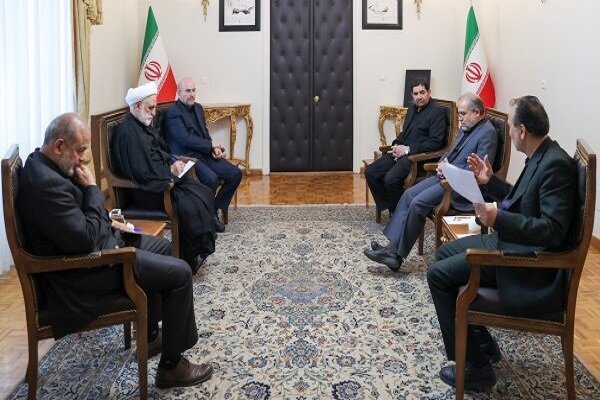Iranian officials discuss electoral procedures for upcoming presidential election

TEHRAN– Iranian deputy president for legal affairs says Iran gears up for the upcoming presidential elections as the Ministry of Interior and the Guardian Council try to ensure the smoothness of the legal procedures.
Mohammad Dehghan shed light on the intricate process of transitioning leadership amidst the looming presidential elections after a meeting with the head of the three branches of the Iranian government on Saturday.
Highlighting the pivotal role played by the Ministry of Interior and the Guardian Council as the executive and supervisory entities overseeing the electoral process, Dehghan underscored the need for adherence to legal frameworks to ensure the smooth conduct of elections.
Dehghan delved into the meticulous registration criteria set for presidential candidates, as outlined in Article 10 of the General Policies of Elections sanctioned by the Guardian Council. These criteria, which encompass a spectrum of requirements including age, educational qualifications, professional experience, and a clean criminal record, are rigorously enforced to uphold the integrity of the electoral process.
Elaborating on the constitutional obligations amidst the current political landscape, Dehghan emphasized the imperative for prompt action by the heads of the three branches to facilitate the election of a new president within the stipulated 50-day timeframe, as mandated by Article 131 of the constitution.
“Multiple deliberations have already been convened among the heads of branches, wherein reports on legal deliberations and collaborative efforts between the Ministry of Interior Affairs and the Guardian Council have been meticulously presented,” he noted.
Dehghan expressed gratitude towards the clarity provided by existing laws in delineating the roles and responsibilities of both the executive and supervisory bodies. Stressing the adaptability of legal frameworks to accommodate exigencies, Dehghan assured that the heads of branches are poised to make informed decisions within the confines of the law to optimize the electoral process.
In the wake of the passing of Seyed Ebrahim Raisi, the thirteenth government's President, the constitutional mandate outlined in Article 131 necessitates the swift organization of presidential elections in a timeframe of 50 days. A council comprising representatives from the judiciary, legislative, and the First Vice President is tasked with overseeing this transition. Following the council's deliberations and the subsequent approval by the Guardian Council, plans have been set in motion for early nationwide presidential elections scheduled for June 28, 2024.
President Raisi, Foreign Minister Hossein Amir Abdollahian and six others died on May 19, when their helicopter crashed in foggy weather in the mountains near the northwestern border with Azerbaijan. The charred wreckage of the aircraft was found the following day.
Vice-President Mohammad Mokhber has been appointed to assume interim duties after the death of the president.
Iran's cabinet has also appointed deputy Foreign Minister Ali Bagheri Kani as acting Foreign Minister.
